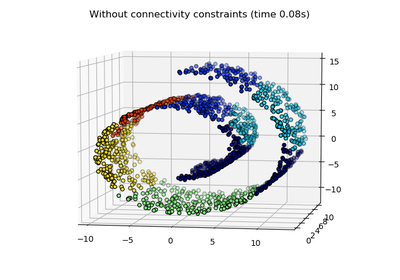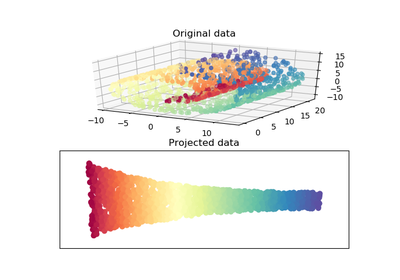sklearn.datasets.make_swiss_roll¶
-
sklearn.datasets.make_swiss_roll(n_samples=100, noise=0.0, random_state=None)[source]¶ Generate a swiss roll dataset.
Read more in the User Guide.
Parameters: n_samples : int, optional (default=100)
The number of sample points on the S curve.
noise : float, optional (default=0.0)
The standard deviation of the gaussian noise.
random_state : int, RandomState instance or None, optional (default=None)
If int, random_state is the seed used by the random number generator; If RandomState instance, random_state is the random number generator; If None, the random number generator is the RandomState instance used by np.random.
Returns: X : array of shape [n_samples, 3]
The points.
t : array of shape [n_samples]
The univariate position of the sample according to the main dimension of the points in the manifold.
Notes
The algorithm is from Marsland [1].
References
[R149] S. Marsland, “Machine Learning: An Algorithmic Perspective”, Chapter 10, 2009. http://seat.massey.ac.nz/personal/s.r.marsland/Code/10/lle.py



